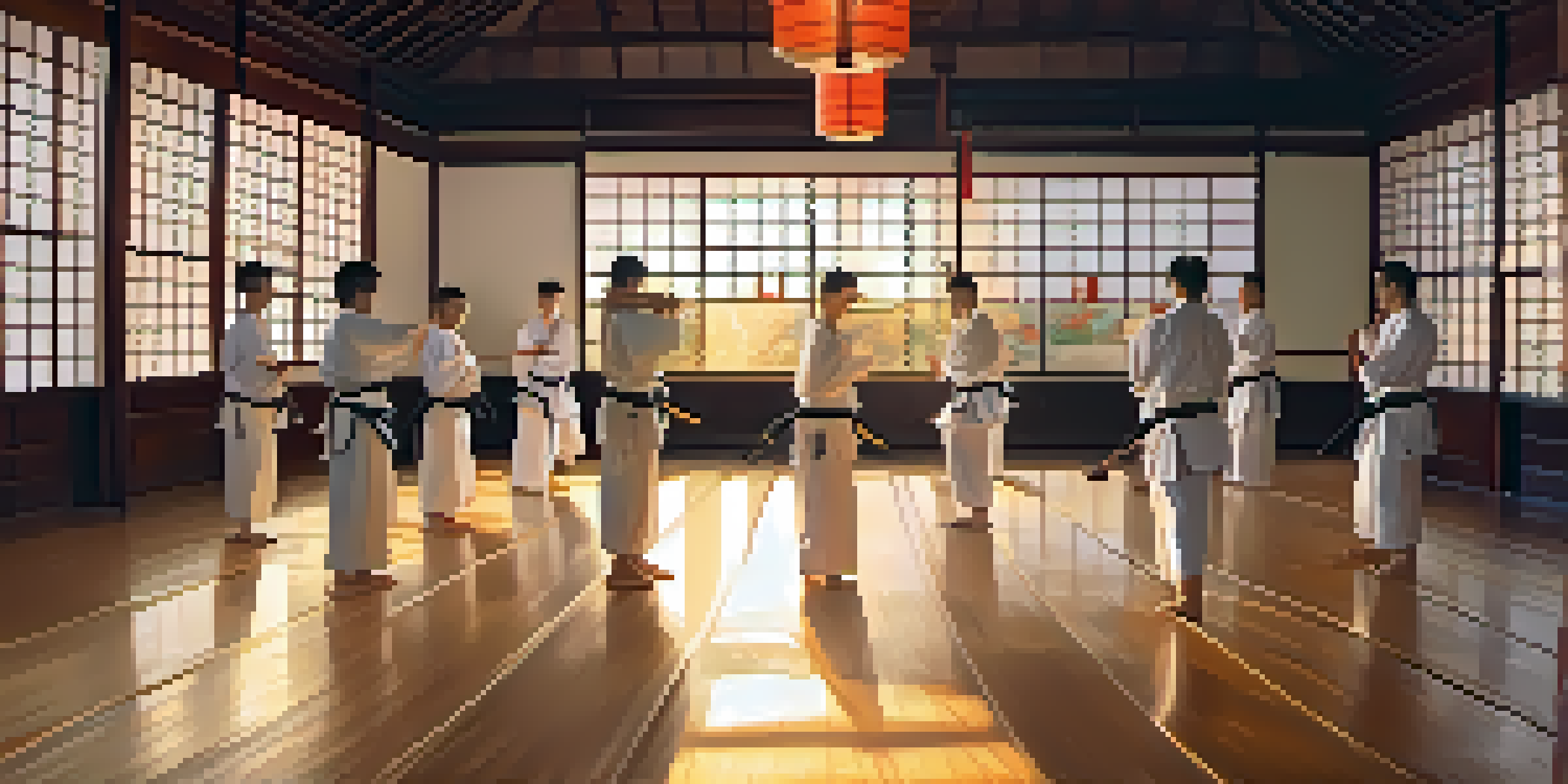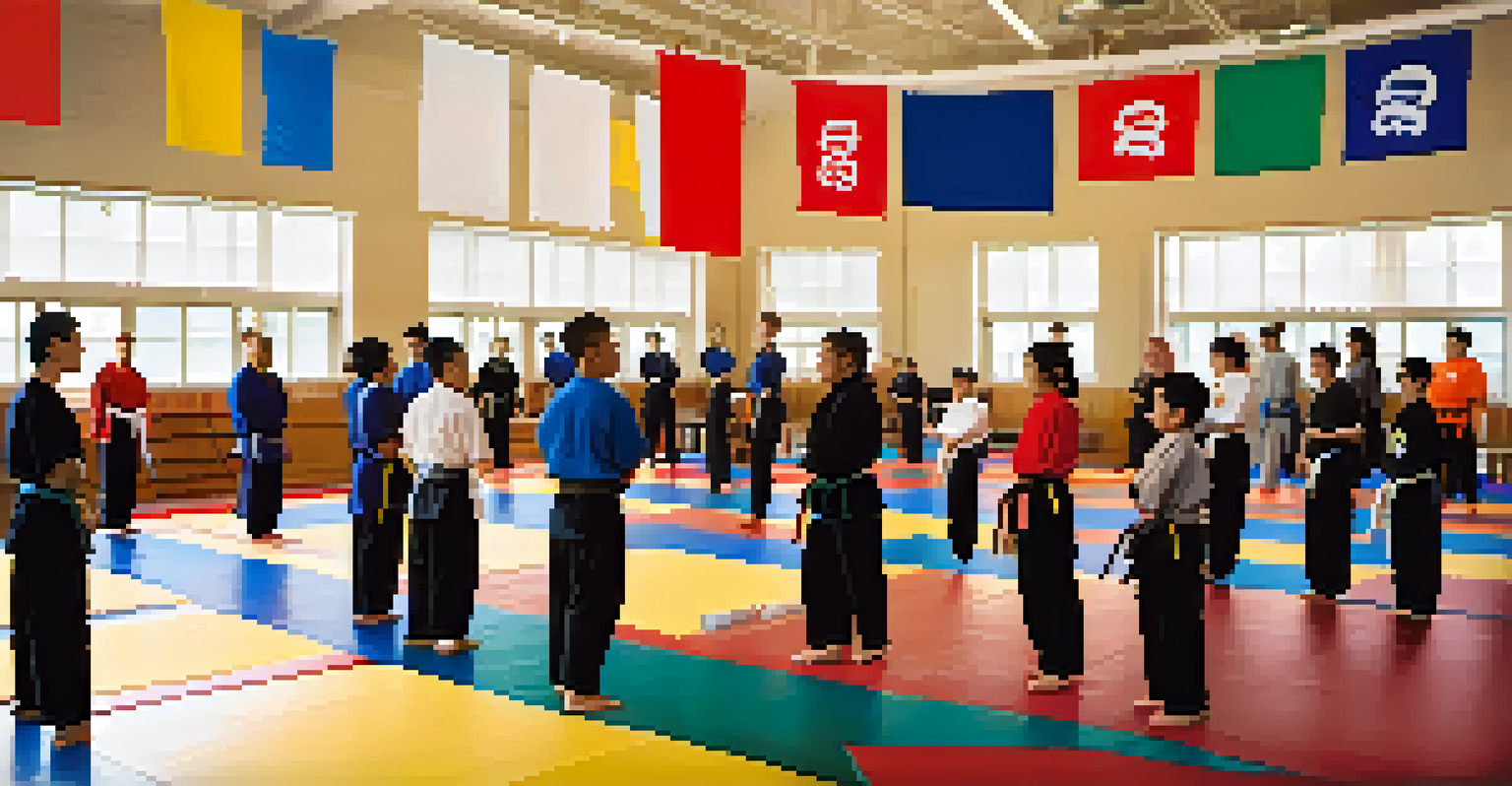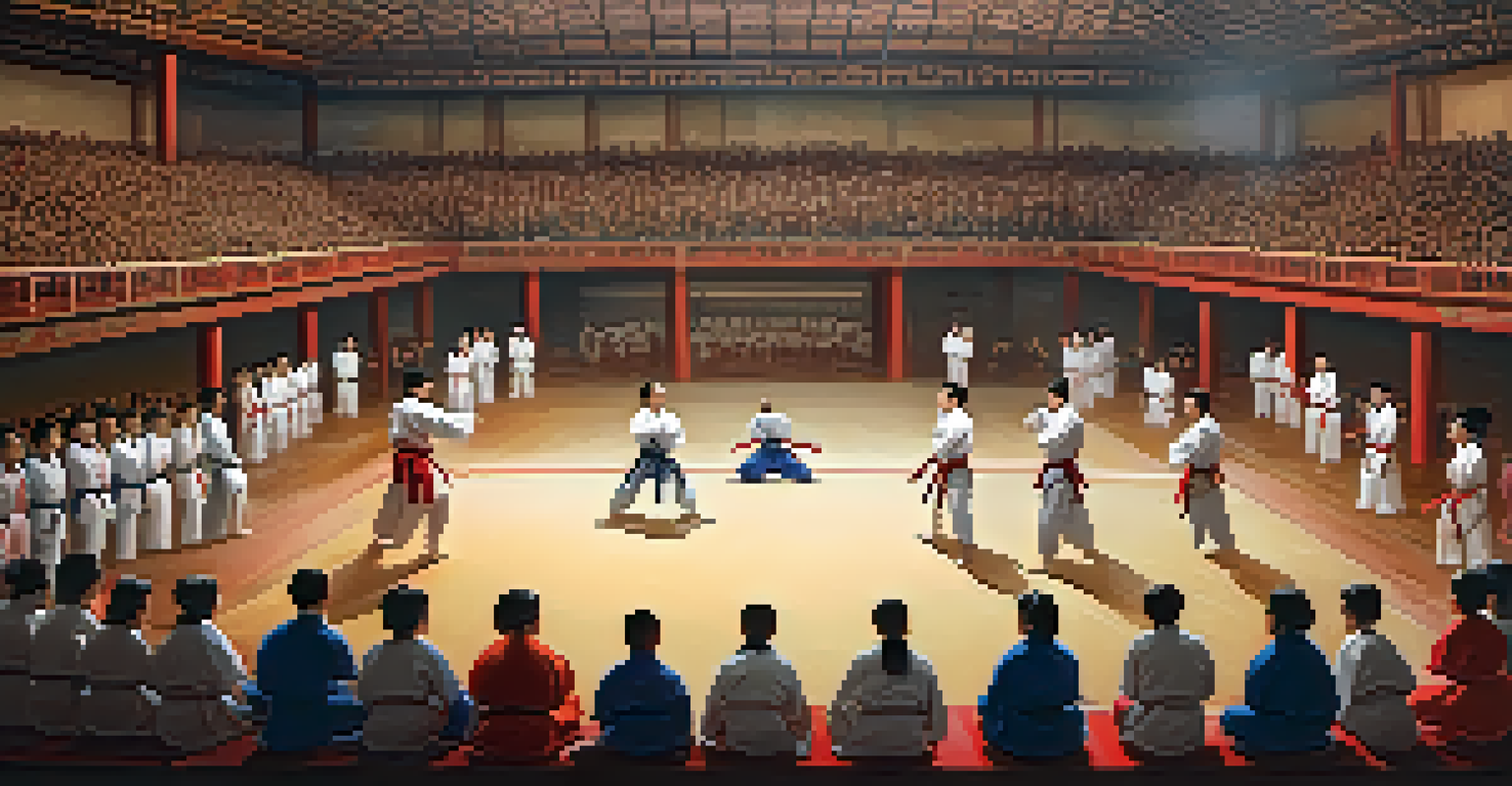The Role of Community in Upholding Martial Arts Ethics

Understanding Martial Arts Ethics and Their Importance
Martial arts ethics encompass the values and principles that practitioners uphold, such as respect, discipline, and humility. These core values not only shape the behavior of individuals in the dojo but also influence their interactions outside of training. When practitioners embody these ethical standards, they contribute to a culture that promotes personal growth and community well-being.
The ultimate aim of martial arts is not having to use them.
In a world where individualism often reigns, martial arts ethics serve as a reminder of our interconnectedness. They encourage practitioners to consider how their actions affect others and to act with integrity. This is crucial in maintaining the honor and reputation of martial arts as a whole.
By adhering to these ethical standards, martial artists cultivate a sense of responsibility towards their peers and the broader community. This shared commitment to ethical conduct helps to create a safe and respectful environment for everyone involved in martial arts.
The Community's Role in Instilling Ethical Values
Community members, including instructors and fellow students, play a crucial role in instilling martial arts ethics. Through mentorship and collective experiences, practitioners learn to appreciate the significance of values like respect and camaraderie. This shared journey fosters a sense of accountability among members, encouraging them to uphold ethical standards.

Regular interactions within the community create opportunities for discussions about ethics, allowing members to reflect on their own behaviors and the behaviors of others. For example, when a student witnesses their instructor demonstrating respect toward opponents, they are likely to emulate that behavior. This cycle of learning reinforces the importance of ethics in martial arts.
Challenges in Competitive Settings
Competition can test ethical values, necessitating proactive measures to maintain integrity and sportsmanship.
Moreover, community events such as tournaments and seminars often emphasize ethical conduct, highlighting the importance of sportsmanship and respect for one’s opponents. These gatherings are not just about competition; they serve as platforms to reinforce the ethical foundations of martial arts.
Peer Influence: Shaping Ethical Behavior in Martial Arts
The influence of peers in martial arts cannot be overstated. Practitioners often look to one another for guidance, support, and inspiration. When a community prioritizes ethical behavior, it creates a positive feedback loop that encourages everyone to strive for the same standards.
Respect your opponent, and you will respect yourself.
For instance, if a group of students consistently practices humility and respect, new members are likely to adopt these values as part of their training. This social aspect of martial arts helps to solidify ethics as a shared responsibility rather than individual burdens. It’s a collective effort to uphold the integrity of the practice.
Furthermore, when unethical behavior is addressed collectively, it reinforces the community's commitment to maintaining high ethical standards. This approach not only discourages negative behavior but also strengthens the bonds among members, creating a culture of mutual respect and support.
Mentorship: Guiding Ethical Development in Martial Arts
Mentorship is a fundamental aspect of martial arts that significantly influences ethical development. Experienced practitioners, or senseis, often serve as role models, demonstrating the ethical principles that are vital to the practice. Their guidance helps shape the next generation of martial artists, instilling values that go beyond physical techniques.
Through one-on-one interactions, mentors can address ethical dilemmas and provide insights based on their own experiences. This personalized approach allows students to ask questions and seek advice, fostering a deeper understanding of martial arts ethics. It’s a relationship built on trust, respect, and shared learning.
Martial Arts Ethics Promote Growth
Practicing respect, discipline, and humility fosters personal development and community well-being.
Additionally, mentorship encourages open discussions about ethics, allowing students to explore various perspectives and develop their own moral compass. This nurturing environment is essential for cultivating a strong sense of ethics among practitioners, ensuring that these values are passed down through generations.
Community Events: Reinforcing Ethical Principles
Community events such as seminars, workshops, and tournaments provide excellent opportunities to reinforce martial arts ethics. During these gatherings, practitioners can come together to learn, share experiences, and discuss the importance of ethical behavior. These events often include discussions about respect, responsibility, and sportsmanship, emphasizing their significance in martial arts.
Participating in community events allows practitioners to witness ethical principles in action, whether it’s through demonstrations or interactions among competitors. These experiences help solidify the understanding that ethics are not just theoretical but are lived and practiced daily. They serve as reminders of the community's collective values.
Moreover, competitions often highlight the importance of sportsmanship, where practitioners are encouraged to celebrate their opponents’ skills and display respect, regardless of the outcome. This focus on ethics during events helps to create a positive environment that upholds the true spirit of martial arts.
The Challenges of Maintaining Ethics in a Competitive Arena
While competition can foster growth, it also poses challenges to maintaining ethical standards. The desire to win can sometimes lead individuals to compromise their values, whether through unsportsmanlike conduct or unethical tactics. Recognizing this tension is crucial for communities dedicated to upholding martial arts ethics.
It's essential for community leaders and instructors to address these challenges head-on, reinforcing the importance of ethics even in competitive settings. By emphasizing that true strength lies in character and integrity, communities can create an environment where ethical behavior is celebrated, regardless of competition outcomes.
Community Shapes Ethical Values
Mentorship and shared experiences encourage martial artists to uphold ethical standards through collective accountability.
Additionally, communities can implement programs that focus on ethical training, helping practitioners navigate the pressures of competition while remaining true to their values. This proactive approach ensures that ethics remain at the forefront, guiding behavior in all aspects of martial arts.
Building a Legacy of Ethical Martial Arts Practice
Creating a lasting legacy of martial arts ethics requires a collective effort from all community members. By consistently modeling ethical behavior and encouraging open conversations about values, practitioners can ensure that these principles endure. This legacy not only benefits current members but also sets a foundation for future generations.
Establishing mentorship programs and community initiatives that focus on ethical training can further strengthen this legacy. By investing in the ethical development of practitioners, communities can cultivate a culture where integrity is valued and upheld. This commitment to ethics will resonate beyond the dojo, influencing members' lives in profound ways.

Ultimately, the role of community in upholding martial arts ethics is vital. Together, practitioners can create a supportive environment that fosters respect, discipline, and humility, ensuring that these values remain central to martial arts for years to come.